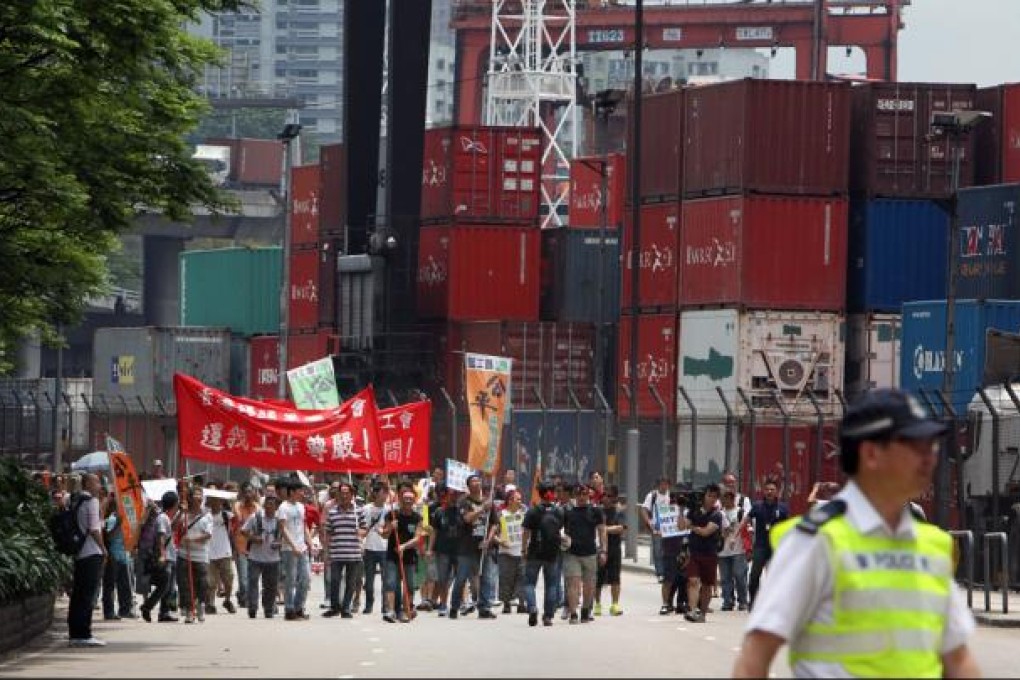Striking dock workers are pawns in dissident campaign
Lau Nai-keung says Cheung Kong picket foreshadows Occupy Central

Industrial action is a powerful weapon during an economic upturn or in a rising industry because the employers have a lot to lose with any stoppage. This single factor accounts for the frequent and successful industrial action in the local airlines.
Sad to say this does not apply to our cargo-handling industry. This is especially true when the biggest shareholder of the company involved in the current dispute, Hongkong International Terminals (HIT), happens to own a share of an expanding container port in Yantian just next door.
Logically, Hutchison boss Li Ka-shing will be more than happy to see more cargo go to Shenzhen for higher profit, leaving room here for the more lucrative property development. Consequently, the more ludicrous the pay demands, the longer the strike, the more the conglomerate's objectives will be met.
This is the sad truth. Radical action can attract attention and excite the participating mob - which has from the beginning totally overwhelmed the originally mild industrial action, both in terms of numbers and demands, escalating it into a premature strike - but it cannot solve real problems.
Now that one of the two main contractor employers of the striking workers has said it will close down, the industrial strike has lost a prime target. Picketing Cheung Kong headquarters only served to reveal to the community the true nature of this event.
This is part of a social campaign, not industrial action. As such, it is going to lose its support and momentum and will fizzle out. Cargo terminal workers on the whole will be in a weaker position around the bargaining table than before.
Those workers who were led into participating in the strike are obviously pawns on a much bigger and more complicated chessboard, and the biggest loser in the game are those workers aged over 50. Chances are they will no longer be able to find a place in this shrinking industry, and the only employment opportunities they can find will pay even less.